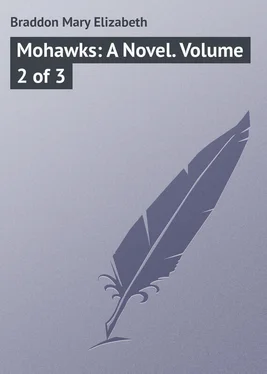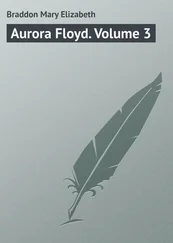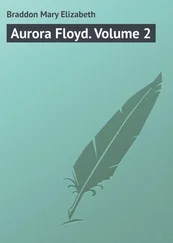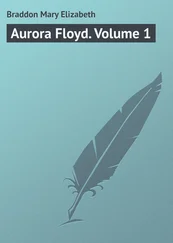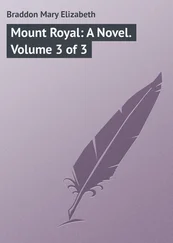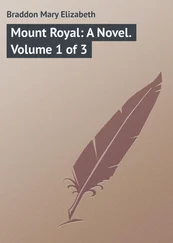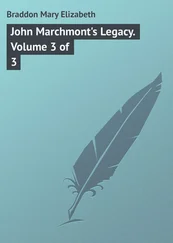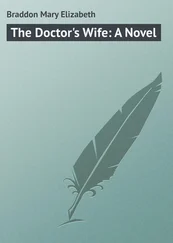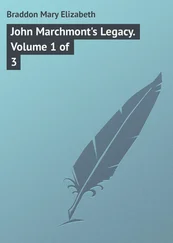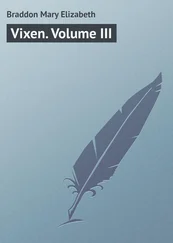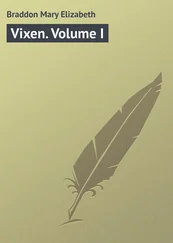Mary Braddon - Mohawks - A Novel. Volume 2 of 3
Здесь есть возможность читать онлайн «Mary Braddon - Mohawks - A Novel. Volume 2 of 3» — ознакомительный отрывок электронной книги совершенно бесплатно, а после прочтения отрывка купить полную версию. В некоторых случаях можно слушать аудио, скачать через торрент в формате fb2 и присутствует краткое содержание. Жанр: foreign_prose, на английском языке. Описание произведения, (предисловие) а так же отзывы посетителей доступны на портале библиотеки ЛибКат.
- Название:Mohawks: A Novel. Volume 2 of 3
- Автор:
- Жанр:
- Год:неизвестен
- ISBN:нет данных
- Рейтинг книги:3 / 5. Голосов: 1
-
Избранное:Добавить в избранное
- Отзывы:
-
Ваша оценка:
- 60
- 1
- 2
- 3
- 4
- 5
Mohawks: A Novel. Volume 2 of 3: краткое содержание, описание и аннотация
Предлагаем к чтению аннотацию, описание, краткое содержание или предисловие (зависит от того, что написал сам автор книги «Mohawks: A Novel. Volume 2 of 3»). Если вы не нашли необходимую информацию о книге — напишите в комментариях, мы постараемся отыскать её.
Mohawks: A Novel. Volume 2 of 3 — читать онлайн ознакомительный отрывок
Ниже представлен текст книги, разбитый по страницам. Система сохранения места последней прочитанной страницы, позволяет с удобством читать онлайн бесплатно книгу «Mohawks: A Novel. Volume 2 of 3», без необходимости каждый раз заново искать на чём Вы остановились. Поставьте закладку, и сможете в любой момент перейти на страницу, на которой закончили чтение.
Интервал:
Закладка:
Lavendale and Durnford followed their host along a corridor to the further end of the house, where there was a spacious room fronting the south, but shaded by the old Gothic cloister upon which the windows opened. There was a glass door also opening into the cloister, and here on sunny mornings, and sometimes even in rainy weather, Mr. Topsparkle walked up and down, sometimes with a book, sometimes in meditative solitude.
The room was handsome and picturesque: the bookcases which lined the walls on all sides were of richly carved oak – the spoils of Flemish churches, the wreckage of old choir-stalls and demolished pulpits. The ceiling was also of oak, heavily bossed. The floor was polished oak, covered in part by a large Oriental carpet. Mr. Topsparkle had not been quite such a Goth as that Lord Westmoreland who built a Grecian front to one side of a fine old cloistered court at Apethorpe; but his taste was of the rococo order, and he had not altogether spared the monastic building which caprice, rather than veneration for antiquity, had tempted him to buy. He had built out an alcove at one end of the room, and had lighted it with painted windows from the wreck of an Italian palace – a patch of renaissance art stuck like a wen upon a purely mediæval building. This alcove Mr. Topsparkle loved better than any other part of his house. It was his own secret cell, in which he delighted to read or meditate, write letters, or survey his financial position, alone or with the attendance of his man of business. Rich as he was, Mr. Topsparkle was not above making more money. He had his dabblings and speculations on 'Change, and was, like Roland Bosworth, in advance of his contemporaries in clearness of insight and breadth of view.
To-day the appearance of this alcove indicated that he had lately been at work there. A large old-fashioned Dutch bureau stood open, the secrétaire littered with papers. It was a wondrous old piece of furniture which filled one side of the recess. The double doors were richly ornamented with the story of the Crucifixion and Entombment carved in high relief. These doors stood open, and the light from the painted window on the opposite side of the recess shone with prismatic hues upon the writing-desk, with its scattered papers and innumerable drawers and pigeon-holes.
"I fear we are intruders here at an awkward time, Mr. Topsparkle," said Lavendale, noting that appearance of recent occupation.
"No, upon my veracity. I have dismissed my man of business; I mean to work no more to-day."
"Hard that Crœsus should have to labour," said Herrick lightly.
"My dear Durnford, be assured that if Crœsus was as rich as we are told, he had been obliged to toil in the maintenance of his fortune, to look to the collection of king's taxes, and see that his people did not plunder him. 'Tis almost as hard labour to keep a fortune as to win one, and I doubt if any man is as happy as the miser who keeps his money in a hole under his pallet, and counts it every night. That, for pure enjoyment, is your true use of money. But let me show you my books."
He unlocked a case and displayed some of his treasures, – curious hooks in all languages, from classic Greek to modern French; from Anacreon to the author of the "Philippiques," those terrible lampoons upon the late Regent, published but a few years earlier in Paris. They were strange and unholy books some of them, the possession of which could not give any man the slightest pleasure, were it not the foolish pride of owning something rare and costly and unparalleled in wickedness. Mr. Topsparkle was intensely proud of them.
"You could never imagine the pains it has cost me to collect these rarities," he said, "and upon my soul I know not if they are worth having. 'Tis like those dulcimers in the music-room which belonged to Marguerite of Valois – Clément Marot's Marguerite, you understand – and for which I gave a small fortune to a Jew dealer in Paris. What do you want, man, that you stand staring there?"
This abrupt question was addressed to a footman, who stood statue-like, just within the doorway, as if he dared not approach nearer his master's august presence. He had murmured some communication which had been unheard.
"Sir, my Lord Bolingbroke is in the billiard-room, and begs particularly for a few minutes' speech with you. He will not detain you longer. He has had some news from London which he would like to tell you."
"Tell his lordship I will be with him instantly. If you will excuse my brief absence, gentlemen? The books may amuse you while I am gone, but my choicest gems are yet to be shown. Or if you would like to defer to another morning – " he added, with an uneasy glance towards the alcove, which Lavendale was too preoccupied to perceive.
"No, no, my dear sir, we will wait for your return. There are books and pictures and curios here to amuse us for a week."
"I'll not be long," said Topsparkle, hurrying away.
The two young men strolled about the room, in which there was indeed plenty to interest and enchain the connoisseur in art-curiosities. Bronzes, medallions, coins, porcelain, loaded the tables, and adorned every available inch of space which was not filled by the books. The collector's passion for amassing specimens of every art and every school was exhibited in its fullest development.
Lord Lavendale came presently to the alcove. It was curtained off at times from the rest of the room by a fine old piece of Indian embroidery, a thick and heavy fabric in which gems of all kinds were embedded upon a ground of silken brocade mingled with a curious golden tissue. Lavendale and Durnford admired the curtain, which was drawn back to about a third of the opening, and then his lordship's quick glance lighted on the old oak cabinet.
"It is a shrine," he cried, "the back portion of an old Dutch altar, I take it, with some rare old picture for the reredos. That central panel is a door with a picture behind it. Did you ever see finer carving?"
"These doors are magnificent," said Durnford, looking at the two outer doors which had been flung back.
"Yes, the carving there is bold and spirited, but this is finer work. Here is the story of the Nativity, and the four kings with their offerings – the manger and the three beasts. You remember the old legend – how the ass brayed eamus , and the ox answered in his deep bass roar, ubi , and the lamb ba-ad 'Bethlehem.' Yes, here is the Virgin, and the humble cradle of Divinity."
"Let us see the picture behind the panel, if there is one. A Vandyke, perhaps," suggested Durnford. "Look, there is a key."
He pointed to a very small key in the outer moulding which framed the storied panel. Lavendale turned the key and drew back the door.
"My God!" cried Durnford; "Irene's portrait!"
It was no Vandyke – no sad and solemn picture of the Crucifixion, or the Descent from the Cross, no pale divine head with its coronal of thorns. It was only a woman's face, beautiful exceedingly, with golden-brown hair, and dark violet eyes under black lashes; a pale, sweet, almost perfect face, and the image of Irene Bosworth. And yet it was not Irene's portrait. A more deliberate inspection showed points of difference in the two faces. There was a startling resemblance, but not identity.
"What, you have discovered another of my secret treasures?" asked a soft and legato voice at Lavendale's elbow.
It was Mr. Topsparkle, who had reëntered the room so quietly that neither of his guests had been aware of his approach. He was paler than usual under his paint, and had a somewhat troubled air, Durnford thought; but if he were vexed at finding them before the hidden picture, he gave no utterance to his vexation.
"A very beautiful head and very tolerably painted, eh, gentlemen?" he asked lightly.
"A lovely head and very finely painted," replied Lavendale; "but there is something that strikes me more forcibly than the beauty of the face or the skill of the painter." He looked fixedly at Mr. Topsparkle as he spoke.
Читать дальшеИнтервал:
Закладка:
Похожие книги на «Mohawks: A Novel. Volume 2 of 3»
Представляем Вашему вниманию похожие книги на «Mohawks: A Novel. Volume 2 of 3» списком для выбора. Мы отобрали схожую по названию и смыслу литературу в надежде предоставить читателям больше вариантов отыскать новые, интересные, ещё непрочитанные произведения.
Обсуждение, отзывы о книге «Mohawks: A Novel. Volume 2 of 3» и просто собственные мнения читателей. Оставьте ваши комментарии, напишите, что Вы думаете о произведении, его смысле или главных героях. Укажите что конкретно понравилось, а что нет, и почему Вы так считаете.
